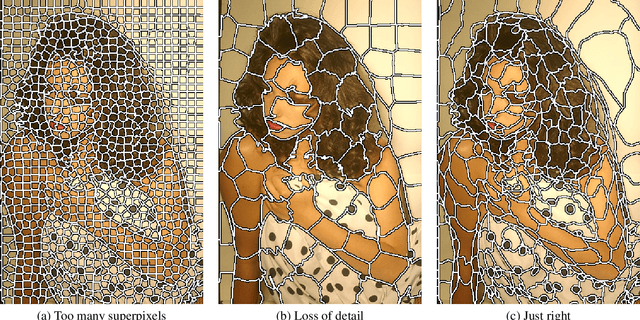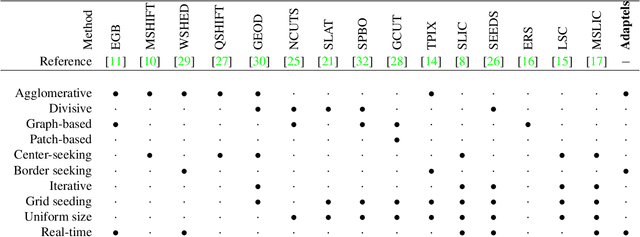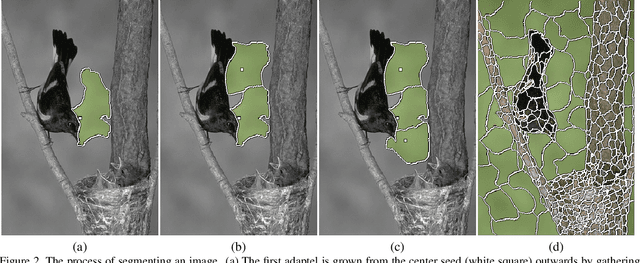Uniform Information Segmentation
Paper and Code
Nov 27, 2016



Size uniformity is one of the main criteria of superpixel methods. But size uniformity rarely conforms to the varying content of an image. The chosen size of the superpixels therefore represents a compromise - how to obtain the fewest superpixels without losing too much important detail. We propose that a more appropriate criterion for creating image segments is information uniformity. We introduce a novel method for segmenting an image based on this criterion. Since information is a natural way of measuring image complexity, our proposed algorithm leads to image segments that are smaller and denser in areas of high complexity and larger in homogeneous regions, thus simplifying the image while preserving its details. Our algorithm is simple and requires just one input parameter - a threshold on the information content. On segmentation comparison benchmarks it proves to be superior to the state-of-the-art. In addition, our method is computationally very efficient, approaching real-time performance, and is easily extensible to three-dimensional image stacks and video volumes.
 Add to Chrome
Add to Chrome Add to Firefox
Add to Firefox Add to Edge
Add to Edge